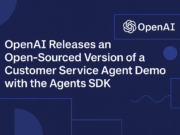
GUEST POST from Greg Satell
When Lou Gerstner was chosen to steer IBM in 1993, he was an unlikely revolutionary. A McKinsey advisor after which the profitable CEO of RJR Nabisco, he was thought of to be a pillar of the institution. He would, nonetheless, develop into as subversive as any activist, reworking the corporate and saving it from near-death.
But there was extra to what he achieved than merely turning crimson ink to black. “The Gerstner revolution wasn’t about expertise or technique, it was about reworking our values and our tradition to be in larger concord with the market,” Irving Wladawsky-Berger, one in all his chief lieutenants, informed me.
Values are important to how an enterprise honors its mission. They signify selections of what a company will and won’t do, what it rewards and what it punishes and the way it defines success and failure. Maybe most significantly, values will decide an enterprise’s relationships with different stakeholders, the way it collaborates and what it could actually obtain.
Values Incur Prices And Constraints
At his very first press convention, Gerstner famously declared: “the very last thing IBM wants proper now could be a imaginative and prescient.” It was an odd, even surprising assertion for a brand new CEO charged with turning round a historic firm. However what he understood, and few others did, was that until he modified the tradition to honor the values its success was constructed on, no technique may succeed.
“At IBM we had overlooked our values,” Wladawsky-Berger would later inform me. “For instance, there was a protracted custom of IBM executives dressing formally in a swimsuit and tie. But that wasn’t a worth, it was an early manifestation of a worth. Within the early days, a lot of IBM’s clients had been banks, so IBM’s salespeople dressed to mirror their clients. So the worth was to be near clients.”
Gerstner had been a buyer and knew that IBM didn’t all the time deal with him nicely. At one level the corporate threatened to tug service from a whole knowledge heart as a result of a single piece of aggressive tools was put in. In order CEO, he vowed to shift the main focus from IBM’s “personal “proprietary stack of applied sciences” to its clients’ “stack of enterprise processes.”
But he did one thing else as nicely. He made it clear that he was prepared to forego income on each sale to do what was proper for the client and he confirmed that he meant it. Over time I’ve spoken to dozens of IBM executives from that interval and nearly all of them have pointed this out. Not one appears to assume IBM would nonetheless be in enterprise immediately with out it.
The reality is that should you’re not prepared to incur prices and constraints, it’s not a worth. It’s a platitude. “Lou refocused us all on clients and listening to what they needed and he did it by instance,” Wladawsky-Berger, remembers. “We began listening to clients extra as a result of he listened to clients.
Values Sign Belief And Credibility
In South Africa, the Congress of The Individuals was held in June, 1955. The gathering, which included blacks, blended race, Indians and liberal whites, convened to draft and undertake the Freedom Constitution, very like the Continental Congress gathered to provide the Declaration of Independence in America. The thought was to give you a standard and inclusive imaginative and prescient.
Nevertheless, the Freedom Constitution was something however reasonable. It was a “revolutionary doc exactly as a result of the modifications it envisioned couldn’t be achieved with out radically altering the financial and political construction of South Africa… In South Africa, to merely obtain equity, one needed to destroy apartheid itself, for it was the very embodiment of injustice,” Nelson Mandela would later write.
But regardless of its seemingly radical goals, the Freedom Constitution spoke to frequent values, akin to equal rights and equal safety below the legislation—not simply among the many signatories, however for anybody dwelling in a free society. It was highly effective due to the way it signaled to exterior stakeholders, akin to worldwide establishments, governments and companies that they shared extra with the anti-apartheid motion than they did with the regime.
It was due to these values that activists had been in a position to efficiently boycott companies, akin to Barclays Financial institution and Shell Oil, that did enterprise in South Africa. When these corporations pulled their investments out, the dominoes started to fall. Worldwide sanctions and political stress elevated markedly and Apartheid turned politically untenable.
Right here once more, values would play an important position. Very similar to Gerstner’s willingness to lose income on each sale to maintain his dedication to IBM clients, Mandela’s dedication to the Freedom Constitution, even throughout 27 years in jail, signaled to stakeholders—inside and outdoors of South Africa—that supporting his trigger was the proper factor to do.
Shared Values Drive Collaboration
Within the Nineteen Sixties and 70s, Route 128 exterior of Boston was the middle of expertise, however by the Nineties Silicon Valley had taken over and by no means seemed again. As AnnaLee Saxenian defined in her basic, Regional Benefit, the important thing distinction had much less to do with technique, expertise and techniques than it did with values and the way the companies noticed themselves.
Dominant Boston companies akin to DEC, Knowledge Basic and Wang Laboratories noticed themselves as warring fiefdoms. The west coast startups, nonetheless, noticed themselves as a part of the identical ecosystem and tended to band collectively and socialize. “All people labored for a similar firm — Silicon Valley,” Saxenian would later inform me.
This distinction in values translated immediately into variations in operational follow. For instance, in Silicon Valley should you left your employer to start out an organization of your individual, you had been nonetheless thought of a part of the household. Many new entrepreneurs turned suppliers or clients to their former employers and nonetheless socialized actively with their former colleagues. In Boston, should you left your agency you had been handled as a pariah and an outcast.
When expertise started to shift within the 80s and 90s, the Boston companies had little, if any, connection to the brand new ecosystems that had been evolving. In Silicon Valley, nonetheless, connections to former staff acted as an antenna community, offering early market intelligence that helped these corporations adapt.
Once you worth competitors above all else, everyone seems to be a possible enemy. Nevertheless, when you’re prepared to forsake absolute fealty within the service of collaboration, you may leverage the belongings of a whole ecosystem. These could not present up on a strategic plan or a stability sheet, however they’re simply as necessary as another asset.
Shifting From Hierarchies to Networks
The reality is that IBM was not devoid of values when Gerstner arrived. It’s simply that they’d gone awry. “IBM had all the time valued competitiveness, however we had began to compete with one another internally moderately than working collectively to beat the competitors,” Wladawsky-Berger remembers. Definitely it valued expertise and earnings, simply not clients.
What Gerstner did was, as famous above, deliver the corporate’s tradition and values again into “concord with the market.” The corporate not wielded monopoly-like energy. It needed to collaborate with a big selection of stakeholders. It was this realization that led it to turn out to be the primary main expertise firm to embrace open supply software program and help Linux.
Historically we’ve seen the world as pushed by hierarchies. Kings and queens dominated the world via aristocracies that carried out their orders. Company CEO’s outlined methods that underlings must execute. Self-discipline was enforced via a system of punishments and rewards. Energy was valued above all else.
But as Moisés Naím identified in The Finish of Energy, “Energy is simpler to get, however more durable to make use of or hold.” Due to this fact, the flexibility to draw has turn out to be extra necessary than the facility to compel or coerce. That’s why immediately, technique has much less to do with rising efficiencies and buying assets and extra to do with widening and deepening networks of connections.
Energy not lies on the high of hierarchies, however emanates from the middle of networks. What determines whether or not we are going to get there or not is our values.
— Article courtesy of the Digital Tonto weblog
— Picture credit: Pexels
![]() Enroll right here to hitch 17,000+ leaders getting Human-Centered Change & Innovation Weekly delivered to their inbox each week.
Enroll right here to hitch 17,000+ leaders getting Human-Centered Change & Innovation Weekly delivered to their inbox each week.




















![Diablo 4 Mod Apk Newest Model [Unlimited Excitement]](https://digibytetoday.com/wp-content/uploads/2025/06/1750344127_1-final-180x135.jpg)















